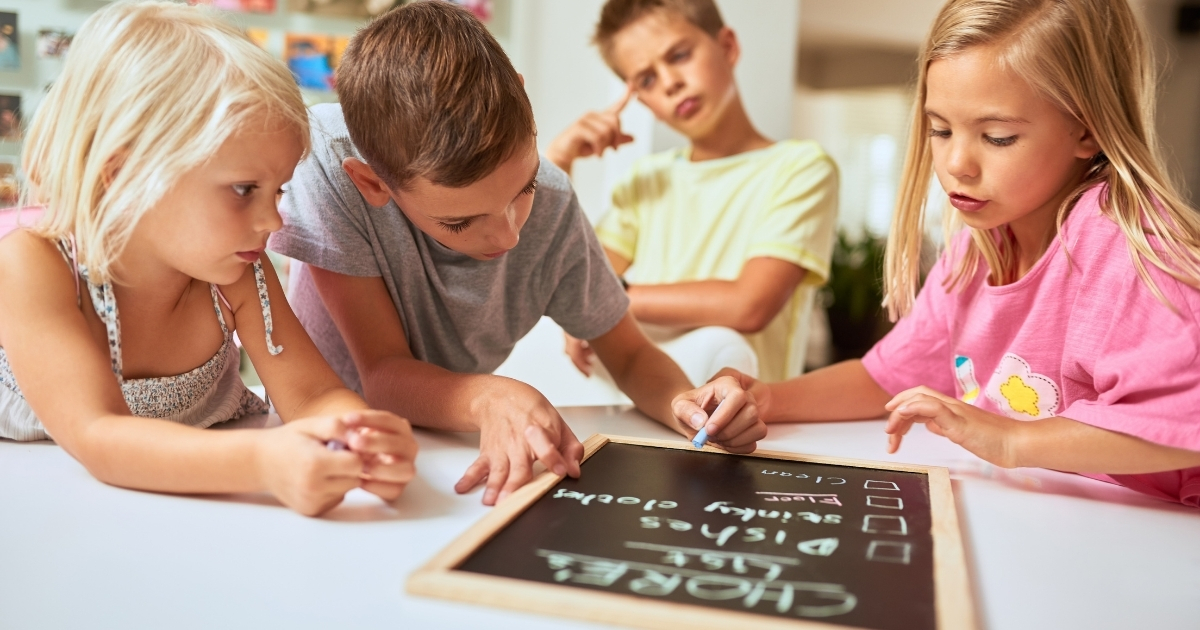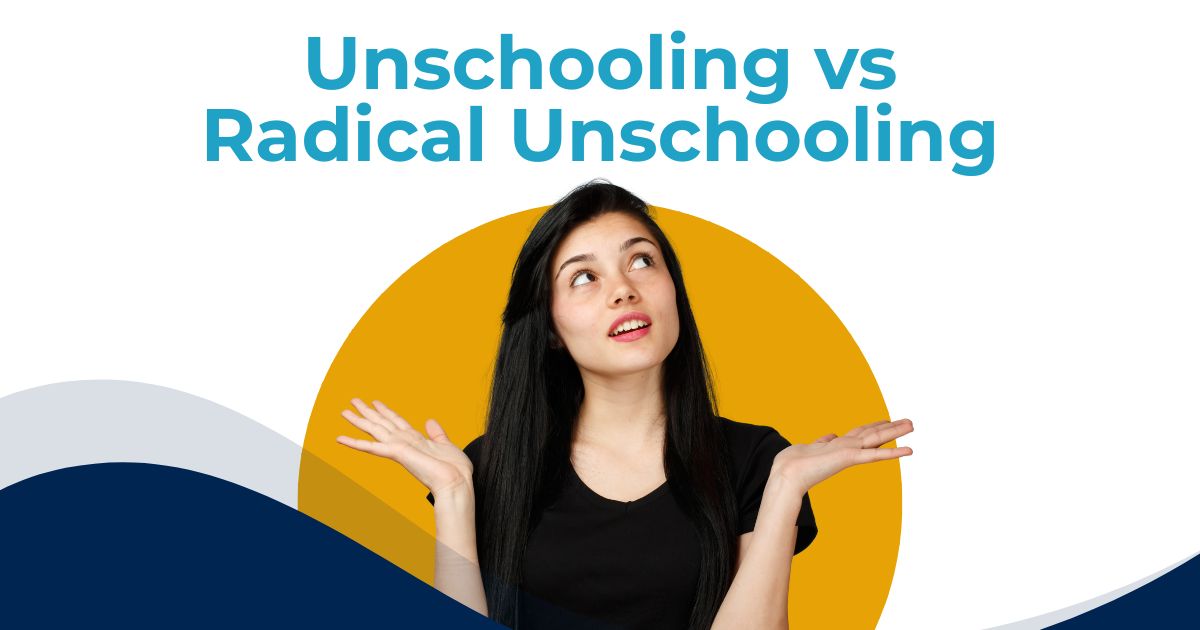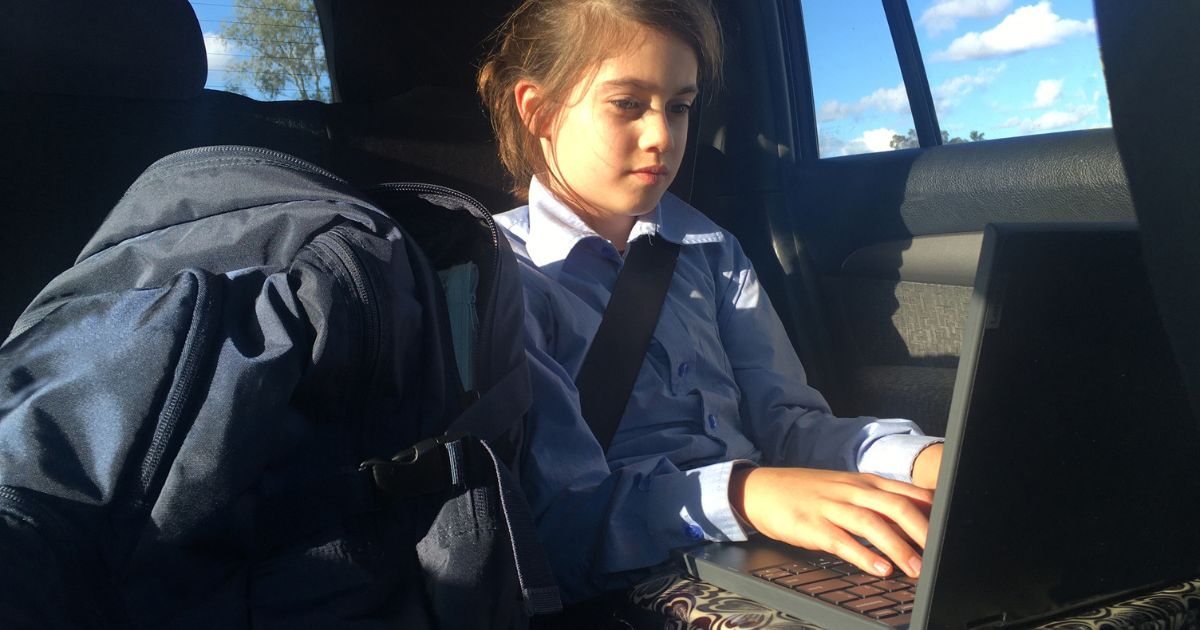In a world that’s constantly evolving, traditional schooling methods sometimes struggle to keep pace with the skills children need to succeed. Enter UnSchooling, a method that flips the script by integrating life skills into daily learning through practical, real-world experiences. For homeschooling parents, understanding how UnSchooling can teach essential life skills for children is key to fostering a well-rounded and capable future generation.
UnSchooling empowers children to learn in an environment without the constraints of a traditional classroom. This approach focuses on real-world examples for kids, allowing them to gain invaluable life skills that textbooks often overlook. Unlike conventional education systems, UnSchooling prioritizes practical application over rote memorization, making learning both engaging and impactful. This approach is particularly beneficial when it comes to teaching life skills that will serve children well into adulthood.
One of the most compelling advantages of UnSchooling is its adaptability. Parents can tailor their teaching methods to suit their child’s interests and strengths, creating a more personalized learning experience. For example, if a child shows an interest in cooking, parents can use this activity to teach measurements, fractions, and even budgeting for ingredients. This kind of practical application makes learning more meaningful and memorable. Another significant benefit is the development of critical thinking and problem-solving skills.
When children are encouraged to explore topics that interest them, they naturally become more inquisitive and engaged. This curiosity drives them to ask questions, seek answers, and think critically about the information they encounter. These skills are crucial for navigating the complexities of the modern world and solving real-world problems.
Financial Literacy & Entrepreneurship In Daily Life
One of the most important life skills for children is financial literacy. Traditional schooling often fails to equip students with the knowledge they need to manage money effectively. UnSchooling, however, provides numerous opportunities to teach children about finances through everyday activities. For instance, parents can involve their kids in budgeting for groceries, managing a small allowance, or even investing in a simple stock market simulation. Teaching life skills such as budgeting and saving can start at a young age. Parents can set up a system where children earn a small allowance for completing chores around the house. This not only teaches responsibility but also gives kids a practical understanding of earning and saving money. Over time, they can learn to allocate their earnings towards different goals, such as saving for a toy or a special outing.
Another effective way to teach financial literacy is through entrepreneurship. Encouraging children to start a small business, like a lemonade stand or a craft shop, can provide hands-on experience in managing finances. They can learn about costs, pricing, profit margins, and even marketing. These experiences are invaluable and can instill a sense of financial responsibility that will benefit them throughout their lives.

Entrepreneurship is another critical area where UnSchooling shines. By encouraging children to pursue their interests and passions, parents can help them develop entrepreneurial skills that are essential in today’s dynamic job market. Whether it’s starting a small business or managing a project, these activities teach kids about leadership, innovation, and resilience. Parents can integrate entrepreneurial lessons into everyday activities. For example, a child who loves baking could start a small baking business, learning about cost management, pricing strategies, and customer service along the way. This hands-on approach makes teaching life skills both fun and practical, ensuring that children grasp the concepts more effectively.
In addition to practical experience, it’s important to discuss entrepreneurial theories and principles. Books, podcasts, and documentaries about successful entrepreneurs can provide valuable insights and inspiration. Parents can watch these together with their children, discussing the key takeaways and how they might apply them to their own projects.
Time Management, Responsibility, Critical Thinking, And Problem-Solving
Time management is a crucial skill that often isn’t given enough attention in traditional schooling. UnSchooling, on the other hand, places a strong emphasis on teaching children how to manage their time effectively. This skill is essential for balancing various responsibilities and achieving long-term goals. One way to teach time management is by involving children in the planning of their daily schedules. Parents can help their kids create a timetable that includes time for learning, play, chores, and relaxation. This not only teaches responsibility but also helps children understand the importance of balancing different aspects of their lives. Another effective method is project-based learning. When children work on projects that interest them, they naturally learn to allocate time for research, planning, execution, and review. This process teaches them how to break down larger tasks into manageable steps, set deadlines, and prioritize their work. These are all essential time management skills that will serve them well in both their personal and professional lives.
Additionally, teaching life skills like goal setting and self-discipline can further enhance a child’s ability to manage their time effectively. Parents can encourage their children to set short-term and long-term goals and then help them create action plans to achieve these goals. This not only fosters a sense of responsibility but also boosts their confidence as they see their efforts pay off.
Critical thinking and problem-solving are among the most valuable life skills for children to develop. UnSchooling provides ample opportunities for children to hone these skills through real-world examples for kids. By encouraging curiosity and exploration, parents can help their children become adept at analyzing situations, evaluating options, and making informed decisions. One effective way to foster critical thinking is through open-ended discussions. Parents can engage their children in conversations about various topics, asking questions that prompt deeper thinking. For example, discussing current events, scientific discoveries, or ethical dilemmas can help children learn to consider different perspectives and form well-reasoned opinions. Problem-solving can be integrated into daily activities as well. For instance, parents can present their children with challenges or puzzles that require creative solutions. Whether it’s building a structure with limited materials or figuring out the best way to organize a space, these activities teach kids to think critically and develop innovative solutions.
Another powerful tool for teaching critical thinking is the Socratic method. This involves asking a series of questions that lead the child to discover answers on their own. For example, if a child is trying to figure out why a plant isn’t growing, parents can guide them through a series of questions about the plant’s environment, care routine, and potential issues. This method encourages children to think deeply and make connections between different pieces of information.
Integrating Life Skills Into Daily Activities & Building A Supportive Learning Environment
Unschooling provides a unique opportunity for children to integrate life skills into their daily routines. By making learning a natural part of everyday life, parents can ensure that their children develop practical skills that will serve them well in the future. This approach not only makes learning more relevant but also helps children see the value of education in their everyday lives. For example, cooking together can teach children about measurements, fractions, and nutrition. Gardening can provide lessons in biology, ecology, and responsibility. Even simple activities like grocery shopping can be used to teach budgeting, comparison shopping, and making healthy choices. Parents can also encourage their children to take on household responsibilities, such as caring for pets, managing chores, and planning family activities. These tasks teach important life skills such as responsibility, organization, and teamwork.
By involving children in these activities, parents can help them develop a strong sense of independence and self-sufficiency. In addition to practical tasks, parents can incorporate educational games and activities that teach life skills. Board games that involve strategy, problem-solving, and decision-making can be both fun and educational. Online resources, such as interactive simulations and educational apps, can also provide valuable learning experiences.
Creating a supportive learning environment is crucial for the success of UnSchooling. Parents play a key role in fostering a positive and encouraging atmosphere where children feel comfortable exploring new ideas and taking risks. This environment should be one where mistakes are seen as opportunities for learning and growth. One way to build a supportive learning environment is by providing access to a variety of resources. This can include books, online courses, educational videos, and hands-on materials. By offering a range of learning tools, parents can accommodate different learning styles and interests, ensuring that children stay engaged and motivated. Encouraging collaboration and social interaction is also important. UnSchooling doesn’t mean learning in isolation.
Parents can organize group activities, field trips, and community events where children can interact with their peers and learn from others. This not only enhances their social skills but also exposes them to different perspectives and ideas. Lastly, it’s essential for parents to be actively involved in their children’s learning journey. This means being available for guidance, support, and encouragement. By showing genuine interest in their children’s activities and achievements, parents can boost their confidence and motivation.
A Flexible Approach To Education
UnSchooling offers a dynamic and flexible approach to education that goes beyond the confines of traditional schooling. By focusing on real-world learning, this method equips children with essential life skills that are often overlooked in conventional classrooms. From financial literacy and entrepreneurship to time management and critical thinking, UnSchooling provides rich opportunities for practical, hands-on learning.
For homeschooling parents, integrating life skills into daily activities and projects can make learning both relevant and enjoyable. By creating a supportive and encouraging environment, parents can help their children develop the skills they need to succeed in life. If you’re looking to explore UnSchooling further or need guidance on how to get started, consider reaching out to educational resources and communities. There are numerous online forums, workshops, and experts who can provide valuable insights and support. Remember, the goal is to nurture a love for learning and equip your children with the skills they need to thrive in the real world.





